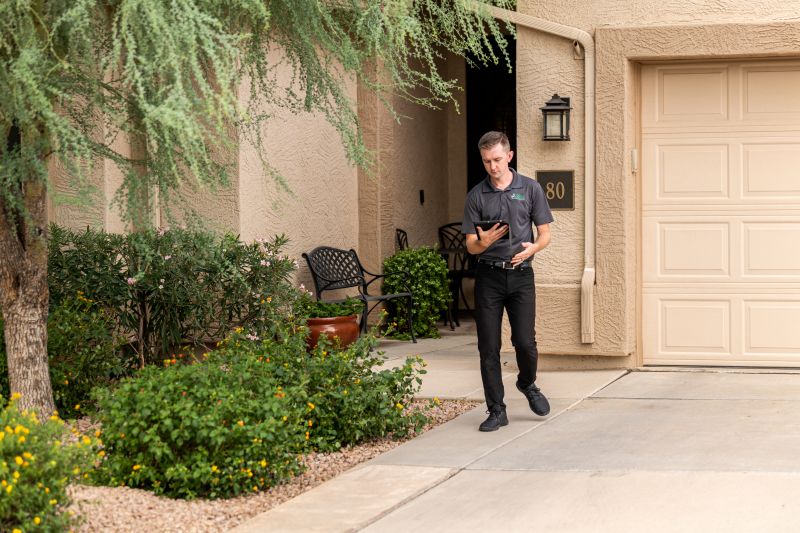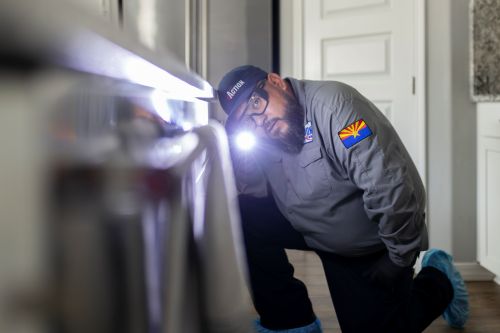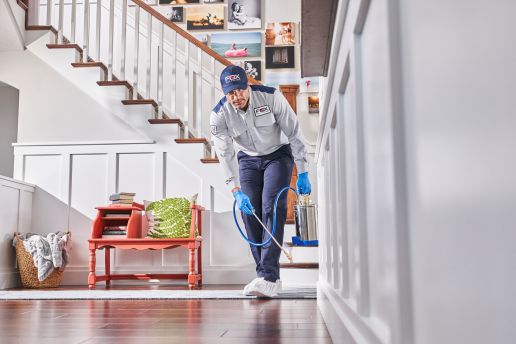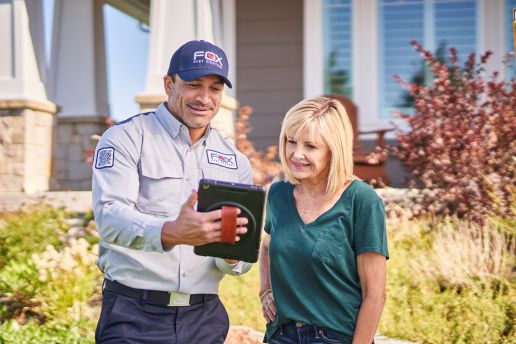Difficult Pest Control Customers: When to Walk Away

Running a pest control business means dealing with all types of customers—some great, others far more demanding. While customer service is essential, certain clients drain time, resources, and morale without bringing real value to your business.
Difficult customers may refuse to pay invoices, constantly dispute services, or demand excessive follow-ups, which can be particularly financially damaging for small businesses. These situations not only hurt profitability but also create stress for technicians and disrupt operations.
The key to a successful pest control business isn’t just attracting new customers—it’s working with the right ones. Recognizing red flags early, setting clear boundaries, and knowing when to walk away can save time, money, and frustration.
This guide will help pest control professionals with key strategies, including identifying problem clients, establishing effective policies, and confidently disengaging when necessary. Prioritizing productive customer relationships ensures long-term success, protects your team, and allows you to deliver high-quality service where it matters most.
Why Are Difficult Customers a Problem?
Dealing with difficult customers in the pest control industry isn’t just frustrating—it directly impacts operations, profitability, and team morale.
While providing high-quality service is essential, some customers create more problems than they are worth, leading to an additional cost in terms of time and resources.
Lost Time and Resources
Customers with excessive demands require multiple follow-ups and unnecessary service calls.
Some expect instant results, failing to understand that pest control treatments take time.
Unreasonable requests—like free rodent control for a minor issue—waste valuable technician hours.
Ensuring the same technician handles follow-ups can improve consistency and lead to better service outcomes.
Negative Impact on Morale
Pest control professionals experience burnout when dealing with confrontational homeowners.
Staff morale drops when customers disrespect pest prevention technicians or constantly complain.
Technicians lose motivation when handling repeated, unresolvable pest problems.
Achieving a home pest-free environment can boost technician morale and customer satisfaction.
Financial Drain
Late payments disrupt cash flow, forcing pest control operators to chase down invoices.
Disputes over completed work lead to lost revenue and extra administrative costs.
Unprofitable customers demand exceptional service but refuse to pay for it. Providing the best pest services is crucial to maintaining high-quality standards and avoiding financial losses.
Reputation Risks
Some demanding clients take their frustration to social media, damaging your brand.
Unfair reviews can misrepresent your pest control services, driving away new leads.
Word-of-mouth from a high-maintenance customer can spread negativity about your company.
Recognizing these risks early allows pest control businesses to protect their time, team, and profitability.
How Can You Identify Difficult Pest Control Customers?
Not every new customer is a good fit for your pest control business.
Some clients create more stress than revenue, demanding too much time, arguing over pricing, or refusing to pay.
Spotting these red flags early can help pest control operators focus on profitable relationships instead of draining ones.
1. Constantly Negotiating Price
Some customers undervalue pest control services, believing they should cost less.
They ask for discounts, compare your prices to DIY solutions, or refuse to pay for extra pest control treatments.
Negotiating price once is normal, but persistent haggling shows they don’t respect your expertise.
These customers often complain about pricing after the work is completed, making payments difficult.
A successful pest control company thrives on fair pricing. If clients constantly push for lower rates, they may not be worth the effort.
2. Unreasonable Expectations
Some homeowners demand immediate pest-free results, ignoring that pest management takes time.
They expect guarantees that common pests like ants and cockroaches will never return, which is unrealistic.
They request after-hours calls, expect instant responses, or demand same-day follow-up visits.
Bed bugs, termites, roaches, and fleas often require multiple treatments, but some customers won’t accept this.
Setting clear boundaries on pest control treatments upfront prevents frustration and protects your technicians from unreasonable workloads.
3. Late or Non-Payment Patterns
A pest control company relies on steady cash flow, but some customers delay payments or refuse to pay at all.
They constantly dispute invoices, claiming services weren’t necessary or demanding extra work for free.
Some dodge phone calls when invoices are due, forcing pest control operators to chase payments.
Late-paying customers hurt your ability to invest in quality pesticides, equipment, and staffing. They leave a sense of frustration in your work and are highly demotivating.
Automated invoicing software like FieldRoutes can help track payments and reduce financial losses from high-risk clients.
4. Micromanagement and Complaints
Some customers hover over technicians, second-guessing every step of their pest control treatments.
They demand explanations for every product used and refuse to trust professional expertise.
Frequent complaints about minor issues suggest they may never be satisfied, even with a customized plan tailored to their specific pest problems.
They insist on unnecessary extra services yet complain about pricing.
A good client respects your pest control industry knowledge. If someone constantly questions your work, they may be more trouble than they’re worth.
5. Disrespectful Behavior
Rude, aggressive, or confrontational customers create stress for technicians.
Some refuse to follow instructions, making successful pest control more difficult.
Others threaten negative social media reviews unless they get special treatment.
Any form of harassment or discrimination should be an automatic red flag.
Your team deserves respect. Pest control professionals should feel safe and valued on every job.
When Should You Walk Away from a Difficult Client?
Not every pest control customer is worth keeping. Some clients drain your time, disrupt your team, and cost more than they contribute. If a client is a problem pest, requiring constant follow-ups, disputing invoices, or treating your staff poorly, it may be time to walk away.
Ask yourself: Is this client helping or hurting my business?
Consider the time, effort, and resources spent versus the revenue they generate. A few problematic clients can prevent you from focusing on profitable homeowners who genuinely value your pest control services. Holding onto unfit customers can also lower staff morale and damage your company’s reputation.
Knowing when to end a business relationship is essential for pest control business owners who want to grow and protect their operations. Here are clear signs: it’s time to let a difficult customer go.
Repeated Late Payments
Clients who constantly delay invoices disrupt cash flow and waste time on collections.
Some refuse to pay for completed services, leaving your business to absorb the loss.
Disputed charges often require extra administrative work, cutting into profits.
If customers regularly need reminders to pay, they may never be reliable clients.
An automated invoicing system like FieldRoutes can help track payments and flag high-risk customers early.
Constant Dissatisfaction Despite Your Best Efforts
Some high-maintenance customers are never satisfied, no matter how well you handle their pest problem.
They demand exceptional service but continuously find reasons to complain.
Hostile clients create unnecessary stress for your technicians, affecting team morale.
Frequent disputes over service quality can damage reputation, especially if they leave unfair online reviews.
Clients who repeatedly question your work, ignore professional advice and refuse to acknowledge solutions aren’t a good fit for your business.
Verbal Abuse or Inappropriate Behavior
No pest control professional should tolerate aggressive, disrespectful, or inappropriate behavior.
Some homeowners yell at technicians, make unreasonable demands, or threaten bad reviews.
If a client discriminates against or harasses your staff, walking away is the only option.
Protecting your team’s well-being ensures a positive work environment and keeps your best employees.
Your pest control company deserves customers who value and respect your services.
How Can You Walk Away from a Customer Gracefully?
Letting go of a difficult pest control customer doesn’t have to be confrontational. The goal is to end the relationship professionally while protecting your business’s reputation. A clear, polite, and strategic approach can help you disengage without unnecessary drama.
Here’s how to walk away while maintaining professionalism.
1. Keep Communication Polite and Professional
Avoid emotional responses—frame the conversation as a business decision, not a personal one.
Stay courteous and direct, focusing on service compatibility rather than complaints.
End things on neutral terms to prevent negative word-of-mouth.
Example: “Unfortunately, we’re not the best fit for your needs, and we believe another provider might better serve you.”
If necessary, explain that company policies prevent you from continuing service, but don’t over-explain.
A professional tone reduces the chances of an angry customer escalating the situation on social media or review platforms.
2. Offer a Referral to Another Provider
Suggest an alternative pest control company that suits their needs if appropriate.
This helps ease tension and positions your business as helpful, even when parting ways.
Example: “We appreciate your business, but we believe [Company Name] may be better suited to assist with your pest issues.”
A referral can also minimize backlash, showing that the decision isn’t personal.
Not all customers will accept the suggestion, but offering a solution softens the impact of the separation.
3. Document the Decision to Protect Your Business
Keep records of all communications leading up to the decision to terminate service.
Maintain written documentation of complaints, payment issues, or service disputes.
Save emails, text messages, or call logs in case a difficult customer tries to file a complaint.
You’ll have documentation to defend your company if the client leaves a negative review.
A clear record ensures you can handle disputes professionally and protect your business’s reputation.
Walking away from a client should be the last resort, but sometimes, it’s the best decision for your pest control business.
How Can You Avoid Difficult Customers in the Future?
Not every pest control customer will be a perfect fit. However, you can minimize the risk of dealing with high-maintenance clients by setting clear expectations, using automated systems, and targeting the right audience.
Proactive steps help pest control business owners attract profitable, long-term customers while avoiding unnecessary stress.
1. Improve Client Screening
Conduct pre-service consultations to gauge expectations and identify potential red flags.
Use detailed service agreements that outline pricing, service limitations, and terms of engagement.
Ask potential customers about past pest control experiences—frequent provider changes can signal dissatisfaction.
Be cautious of clients who insist on discounts, refuse contracts, or question standard procedures.
Setting clear terms upfront ensures you attract customers who respect your expertise.
2. Streamline Invoicing and Payments
Automated invoicing software like FieldRoutes can be used to prevent late payments and disputes.
Require upfront deposits or set up recurring payments for ongoing services.
Send automated reminders for overdue invoices to avoid chasing down payments manually.
Implement strict payment policies, refusing service to habitual late payers.
A smooth payment process prevents financial losses and filters out unreliable clients.
Educate Clients on Your Services and Pest Infestations
Provide detailed explanations of your pest control treatments, including expected results.
Clarify what is and isn’t covered—some pest control services, like termite repairs, may require separate agreements.
Use FAQ sections on your website to pre-emptively address common concerns.
Set realistic expectations—some pests, like bed bugs and roaches, may need multiple treatments.
Well-informed clients are less likely to be dissatisfied or demand unrealistic guarantees.
4. Set Policies for Callbacks and Disputes
Define reasonable callback limits to avoid excessive follow-ups.
Implement a clear dispute resolution process to handle customer complaints professionally.
Set clear policies for specific pest treatments, including termite control, to ensure thoroughness and customer satisfaction.
Train pest control operators to communicate service policies upfront before starting a job.
Keep detailed service records to protect your business from false claims.
Clear policies ensure fair treatment for both your business and your customers.
5. Attract the Right Clients
Use targeted marketing to reach homeowners who understand the value of high-quality service.
Leverage referrals from satisfied clients who appreciate professional pest management.
Maintain a strong online presence with SEO-optimized content that educates and attracts the right audience.
Use customer testimonials and case studies to showcase successful pest control experiences.
Avoiding problematic customers starts with strong business policies and smarter client selection.
How Can FieldRoutes Help You Manage Difficult Customers?
With the right tools, managing difficult pest control customers becomes easier. FieldRoutes’ pest control software helps businesses track client behavior, automate payments, streamline communication, and optimize operations. By using data-driven insights, pest control business owners can focus on profitable, reliable customers while minimizing time spent on high-maintenance clients.
Identify Problematic Customer Patterns
A centralized customer management system allows pest control businesses to track communication history, service records, and payment behavior in one place. This helps identify recurring issues, such as late payments, excessive callbacks, or repeated service disputes. When customer patterns show consistent problems, business owners can decide whether to adjust pricing, policies, or service agreements.
Data-driven insights from FieldRoutes allow businesses to analyze customer trends and determine which clients are profitable and which are draining resources. Detailed reporting tools enable pest control operators to decide which customers to retain or let go.
Automate Payment Collection
Late or missed payments are a common problem with difficult pest control customers. Automated invoicing and reminders help businesses reduce unpaid invoices by ensuring billing and follow-up messages go out on time. Pest control companies can maintain a steady cash flow by setting up recurring payments without chasing down customers for money.
FieldRoutes provides transparent payment tracking, ensuring all charges are documented. This helps prevent billing disputes and allows pest control operators to resolve any payment issues quickly. By maintaining a clear financial record, businesses can protect themselves from non-paying clients while ensuring customers understand service charges upfront.
Streamline Communication
A lack of clear communication often leads to customer dissatisfaction. FieldRoutes’ customer communication tools help by sending automated appointment confirmations, service updates, and follow-ups. This reduces misunderstandings and ensures that customers stay informed about pest control treatments and expected results.
Providing detailed service agreements upfront is another way to prevent future disputes. FieldRoutes allows pest control businesses to share clear contracts that define service limits, callbacks, and additional fees. Setting expectations at the beginning helps eliminate scope creep and ensures customers agree to terms before work begins.
Optimize Operations for Profitable Clients
FieldRoutes’ route optimization helps pest control companies prioritize higher-value clients by improving technician scheduling and travel efficiency. By minimizing time wasted on low-value or difficult customers, businesses can focus on providing exceptional service to reliable clients.
Focusing on profitable, long-term relationships ensures pest control operators are not overextending their teams on high-maintenance jobs. FieldRoutes helps businesses build stronger relationships with customers who trust their expertise and appreciate their services.
Protect Your Business Reputation
Detailed service documentation is essential for defending against unfair complaints or negative reviews. FieldRoutes allows pest control businesses to store records of all services performed, customer complaints, and resolutions. This helps protect the company’s reputation and proves successful pest control treatments when needed.
Over to You
Not every pest control customer is worth keeping. Demanding clients drain your time, hurt your team’s morale, and disrupt business operations. Identifying problem customers early allows you to set boundaries, manage them professionally, and walk away when necessary.
Prioritizing profitable, respectful relationships ensures steady growth for your pest control business. Clear policies, automated invoicing, and effective customer screening help attract the right clients while reducing unnecessary stress.
Managing customers efficiently is easier with the right tools. FieldRoutes helps pest control operators track client behavior, streamline payments, and optimize service routes. Focusing on high-value customers can help you grow your business without frustration.
Want to simplify customer management and improve your bottom line?
Schedule a free demo today to see how FieldRoutes can help.





